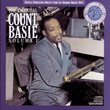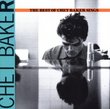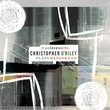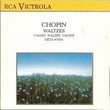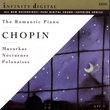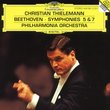| All Artists: Cyril Scott, Shelley, Brabbins, BBC Philharmonic Title: Cyril Scott: Symphony No. 3 "The Muses"; Piano Concerto No. 2; Neptune Members Wishing: 1 Total Copies: 0 Label: Chandos Original Release Date: 1/1/2004 Re-Release Date: 5/25/2004 Genre: Classical Styles: Forms & Genres, Concertos, Symphonies Number of Discs: 1 SwapaCD Credits: 1 UPC: 095115121122 |
Search - Cyril Scott, Shelley, Brabbins :: Cyril Scott: Symphony No. 3 "The Muses"; Piano Concerto No. 2; Neptune
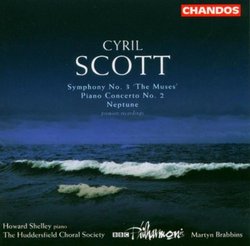 | Cyril Scott, Shelley, Brabbins Cyril Scott: Symphony No. 3 "The Muses"; Piano Concerto No. 2; Neptune Genre: Classical
|
Larger Image |
CD DetailsSimilarly Requested CDs
|
CD ReviewsA jewel amid the junk Dr. Richard M. Price | London, UK | 11/11/2004 (4 out of 5 stars) "Cyril Scott (1879-1970) had the misfortune of too easy success early in his career and mounting neglect for the rest of his life. From as early as 1930 he was being written off as an imitator of Debussy who had nothing more worth saying. Does this adventurous CD confirm or refute this view? Though a lifelong lover of his music, I have to confess that `The Muses', Scott's first mature symphony, is like the curate's egg, good in parts but unacceptable as a whole. It starts well with a sinister and brooding opening movement, but the middle movements are underdeveloped and the choral finale is a watered down version of the General Dance at the end of Ravel's Daphnis and Chloe. The Second Piano Concerto of 1958 is representative of the far more individual idiom that Scott developed when he returned to composing in the late 1940s. The harmony has an acrid complexity, the phrases are brief, and there is none of the effortless note-spinning that led Colin Matthews to dismiss his earlier music as `vapid'. Unfortunately, the work never establishes a convincing relationship between the soloist and the orchestra, and is full of striking gestures that lead nowhere. The recently recorded Second String Quartet (played by Archaeus Quartet on the Dutton label) is a far more attractive example of his late style. That leaves `Neptune', which is a revised version of `Disaster at Sea', a long tone poem depicting the sinking of the Titanic that was written in the late 1910s. There was a tardy first performance in 1933, when the critics panned the work as mere film music. Scott responded by removing the more crudely programmatic parts of the score in a revised and renamed version of the work, which was published in 1935 but has gone unperformed till now. I am happy to hail it as a masterpiece. The tragic atmosphere is sustained throughout, and the writing is beautifully diaphanous and full of highly original orchestral effects, which evoke the surge and the spray and the careering bulk of the doomed ship with uncanny vividness; there is nothing finer in Scott than the bleak epilogue depicting the bare and icy ocean as night sets in. In the wake of the famous film, and with the original title restored, could not this work achieve a belated popularity? Certainly this skilfully crafted and richly sonorous recording makes the strongest possible case. It and the Neapolitan Rhapsody (available on a Marco Polo CD) seem to me the two strongest works by Scott for orchestra alone." This brought me out of 'retirement'! K. Farrington | Missegre, France | 10/21/2004 (5 out of 5 stars) "I have not written a review of a CD for a few years now, largely due to work commitments but also due to the fact that I have not felt moved to say anything about any new CDs coming on stream. However, this CD deserves a strong recommendation to anyone who appreciates the English Musical Renaissance or who has an intesest in 20th century musical developments. The Symphony No 3 is a wonderful work, extremely hard to bring off, I should imagine, with its huge demands on technique and balance on the players, conductor and sound engineers. Chandos as ever does not fail and gives us over an hour of sound magic. There are sounds here that I have never heard before except from synthesizers and modern electronic devices. There is a dash of Ravel of Dapnis et Chloe with the whirling textures BUT it is a nocturnal depiction, the wordless chorus provides some Scriabinesque flavoring but the air of mystery is totally unlike the Russian master. The second piano concerto is very welcome but lower key than the rest; I do my customary moan at this point (what chuzpah!) that I would love to see Scott's masterpiece, the First Piano Concerto in a CD form. The music is adventurous and dynamic and worth the biggest recommendation I can give. Totally brilliant stuff." Wow! Classic Music Lover | Maryland, USA | 06/03/2007 (5 out of 5 stars) "The "Muses" symphony is written on a huge canvas, and is hugely effective. It's the best work on this disk. I'm not as enamored with the "Nautilus" -- almost wish the program notes hadn't told us about the original story line (the sinking of the Titanic). In any case, Martyn Brabbins and his orchestra are stupendous. Kudos to them and to Chandos for beginning their Cyril Scott series with this release. (BTW, the next two in the series have been released as of June 2007, and they are equally good. The Piano Concerto #1 with Howard Shelley on Volume 2 is particularly arresting.) You won't be disappointed in this CD ... and if you like composers like Szymanowski, Scriabin, Charles Griffes or Sorabji, you owe it to yourself to get to know the sound-world of Cyril Scott as well."
|

 Track Listings (12) - Disc #1
Track Listings (12) - Disc #1